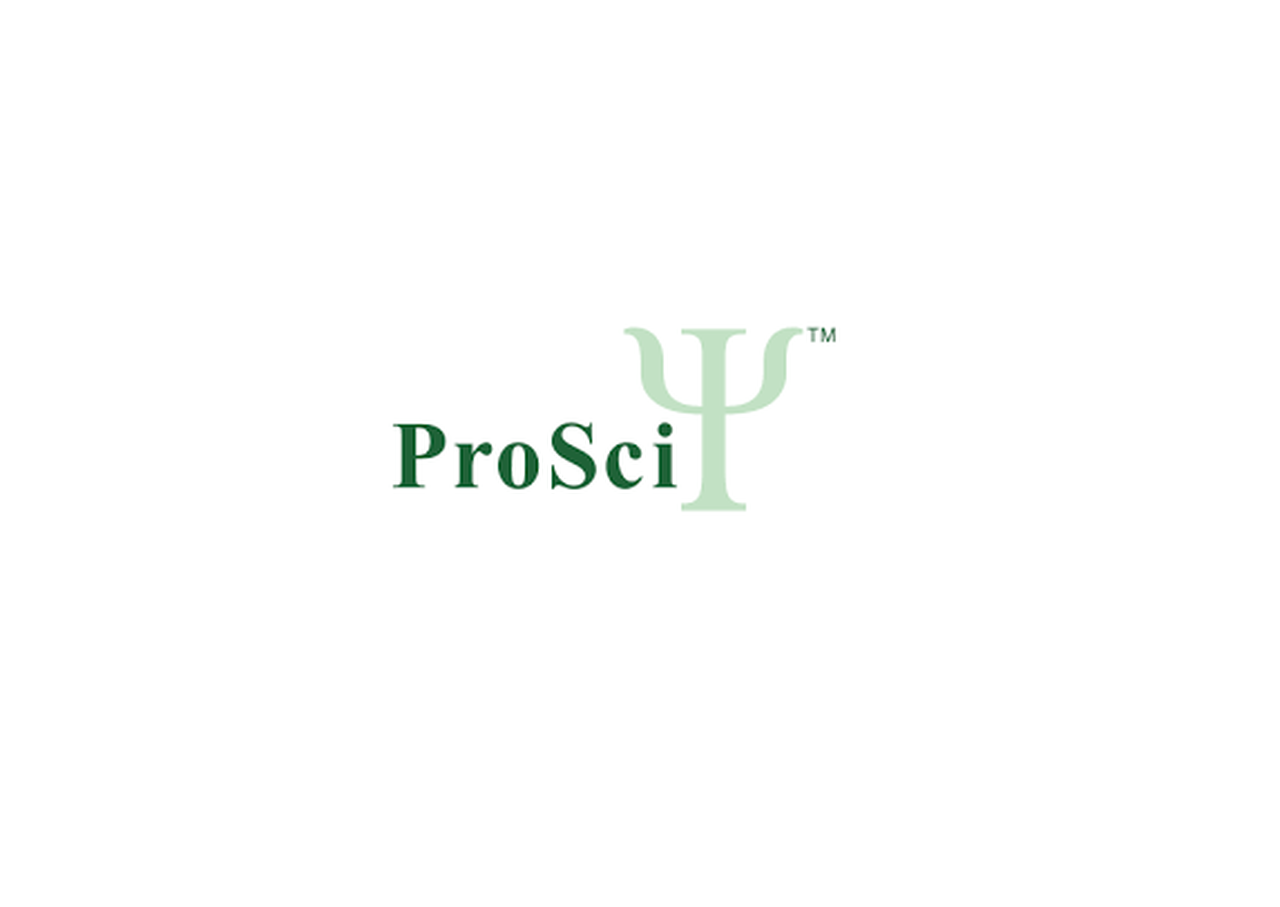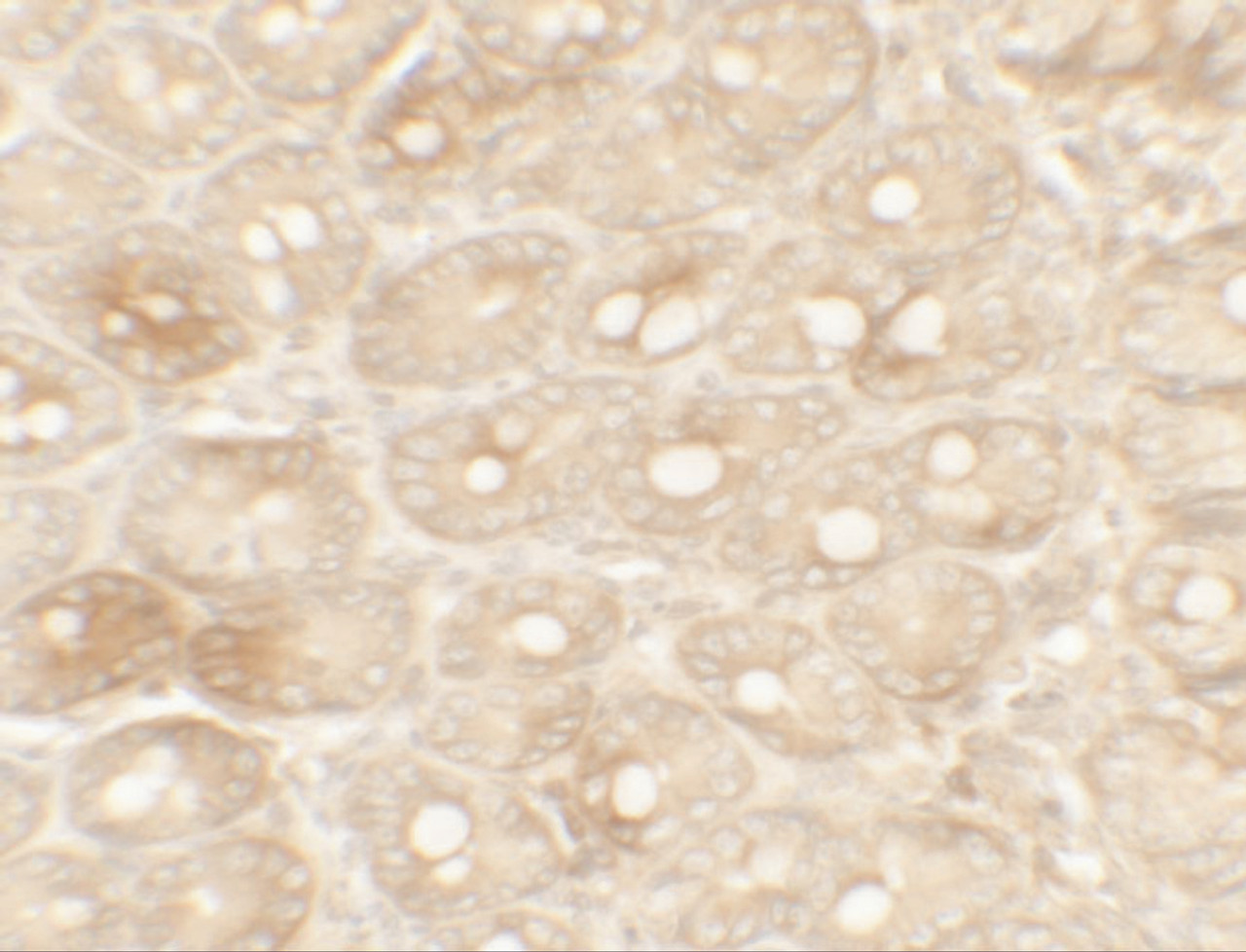Product Description
TFPI Antibody | 7441 | ProSci
Host: Rabbit
Reactivity: Human, Mouse, Rat
Homology: Predicted species reactivity based on immunogen sequence: Rabbit: (92%)
Immunogen: TFPI antibody was raised against a 13 amino acid peptide near the amino terminus of human TFPI.
The immunogen is located within amino acids 70 - 120 of TFPI.
Research Area: Signal Transduction
Tested Application: E, WB, IHC-P, IF
Application: TFPI antibody can be used for detection of TFPI by Western blot at 1 - 2 μg/mL.
Antibody validated: Western Blot in rat samples; Immunohistochemistry in rat samples and Immunofluorescence in rat samples. All other applications and species not yet tested.
Specificiy: TFPI antibody is human, mouse and rat reactive. At least two isoforms of TFPI are known to exist; this antibody will detect both isoforms.
Positive Control 1: Cat. No. 1468 - Rat Small Intestine Tissue Lysate
Positive Control 2: N/A
Positive Control 3: N/A
Positive Control 4: N/A
Positive Control 5: N/A
Positive Control 6: N/A
Molecular Weight: Predicted: 33 kDa
Observed: 30 kDa
Validation: N/A
Isoform: N/A
Purification: TFPI Antibody is affinity chromatography purified via peptide column.
Clonality: Polyclonal
Clone: N/A
Isotype: IgG
Conjugate: Unconjugated
Physical State: Liquid
Buffer: TFPI Antibody is supplied in PBS containing 0.02% sodium azide.
Concentration: 1 mg/mL
Storage Condition: TFPI antibody can be stored at 4˚C for three months and -20˚C, stable for up to one year.
Alternate Name: TFPI Antibody: EPI, TFI, LACI, TFPI1, Tissue factor pathway inhibitor, Extrinsic pathway inhibitor, TFPI
User Note: Optimal dilutions for each application to be determined by the researcher.
BACKGROUND: TFPI Antibody: Tissue factor pathway inhibitor (TFPI) , also known as lipoprotein-associated coagulation inhibitor, is a protease inhibitor that regulates the tissue factor (TF) -dependent pathway of blood coagulation (1) . TFPI is glycosylated and predominantly found in the vascular endothelium and plasma in both free forms and complexed with plasma lipoproteins. The coagulation process initiates with the formation of a factor VIIa-TF complex, which proteolytically activates additional proteases (factors IX and X) and ultimately leads to the formation of a fibrin clot. TFPI inhibits the activated factor X and VIIa-TF proteases in an autoregulatory loop (1) .
 Euro
Euro
 USD
USD
 British Pound
British Pound
 NULL
NULL












